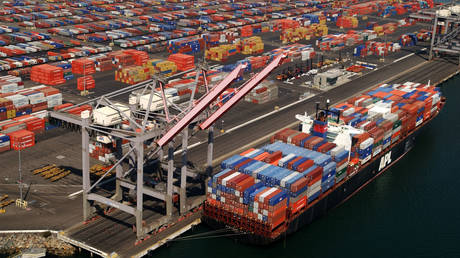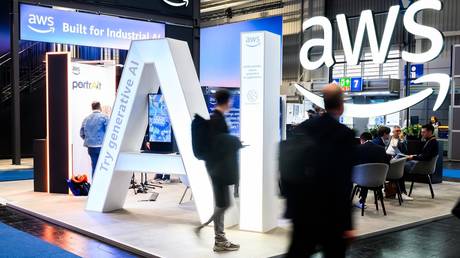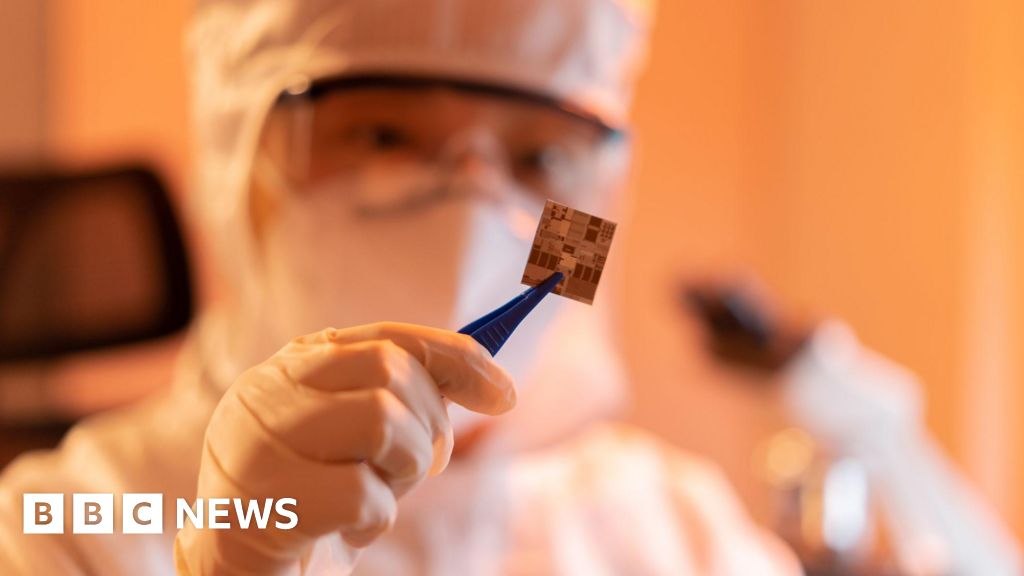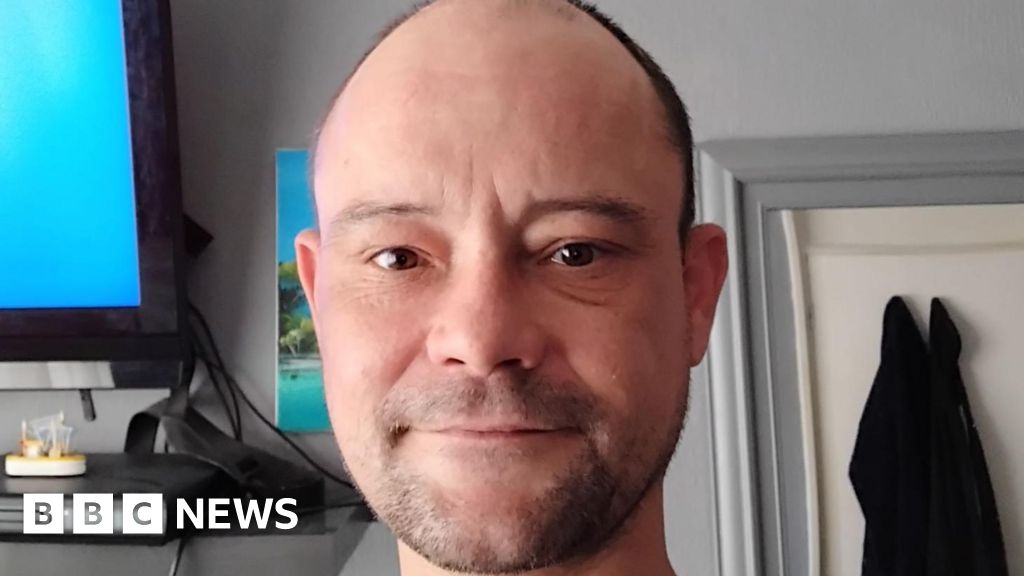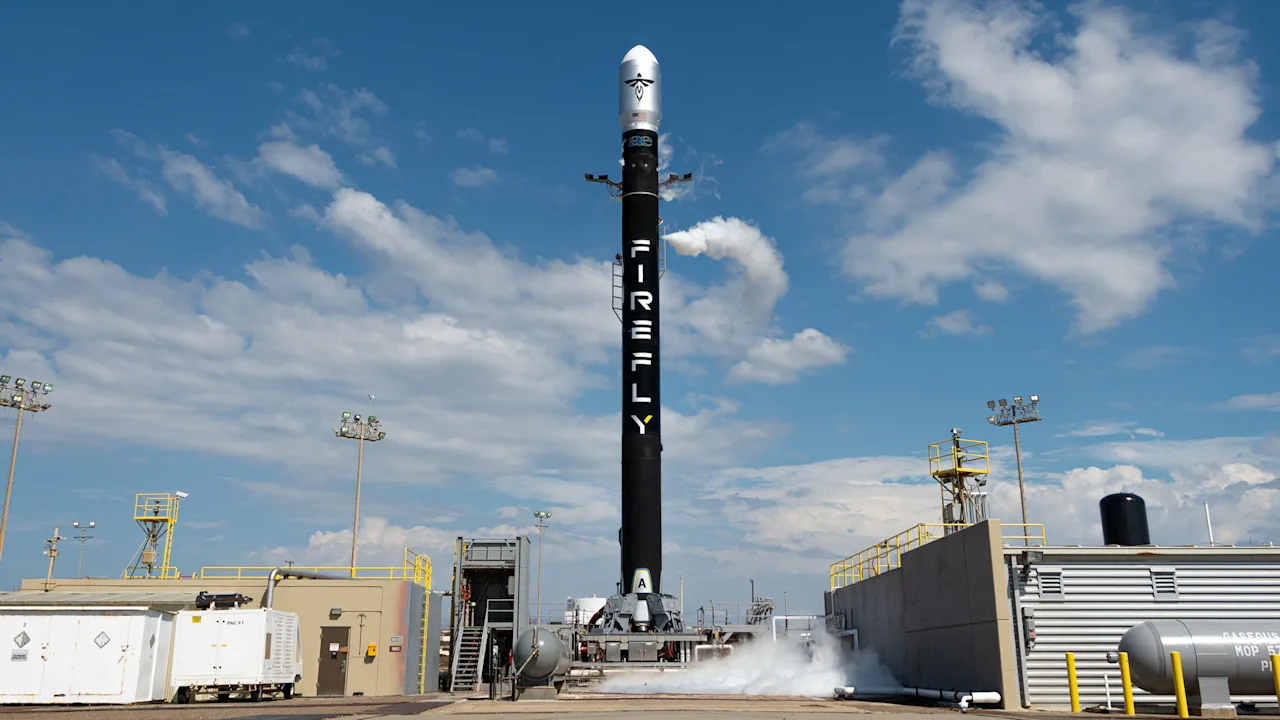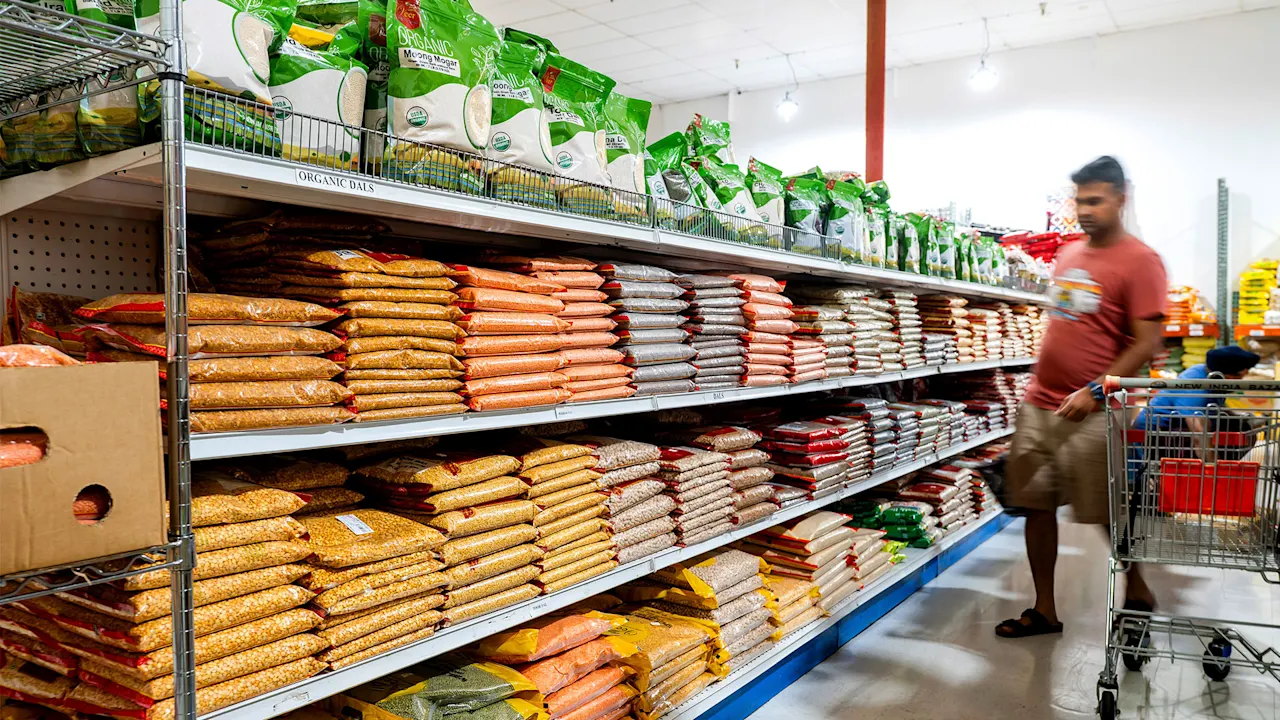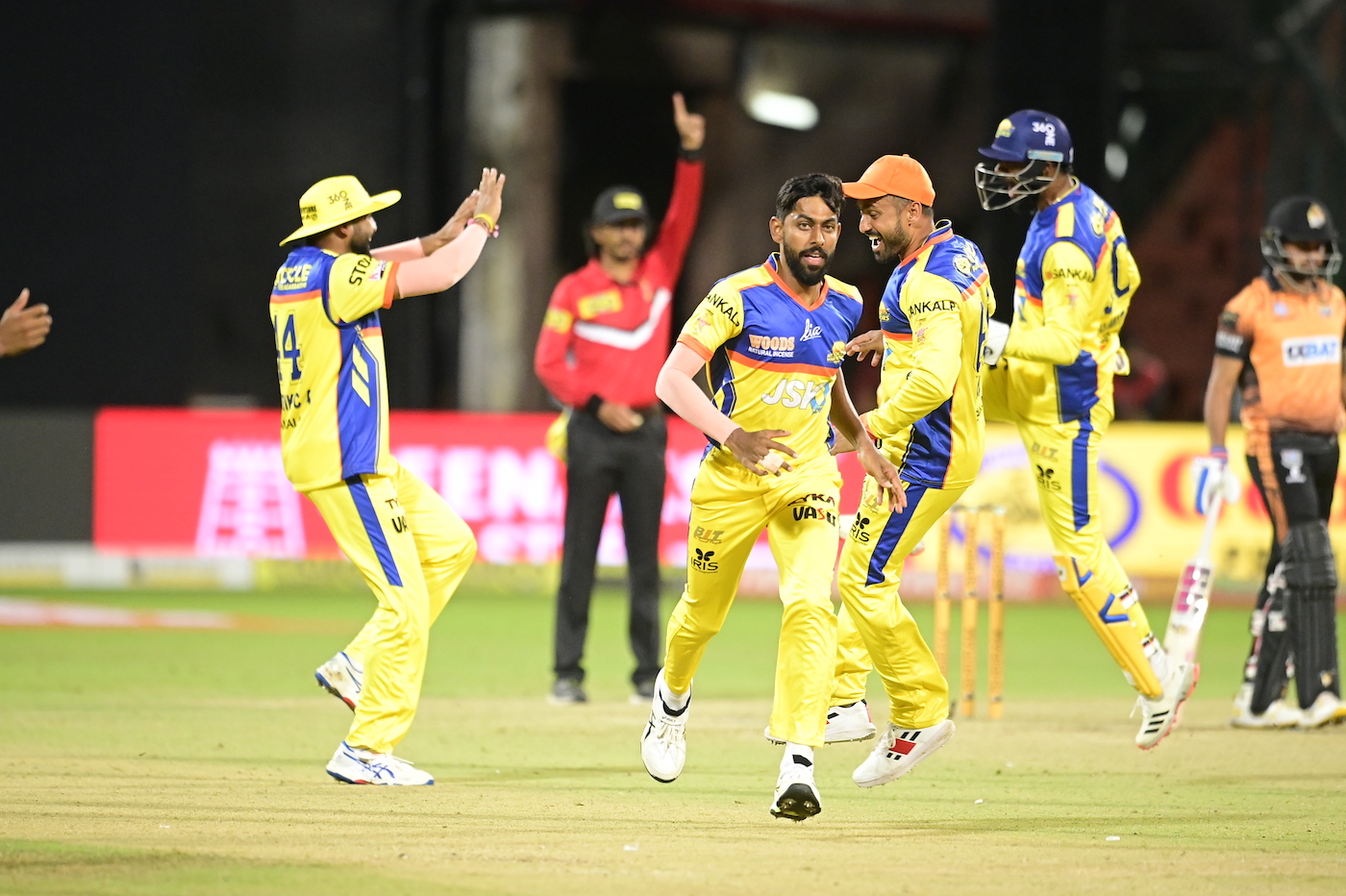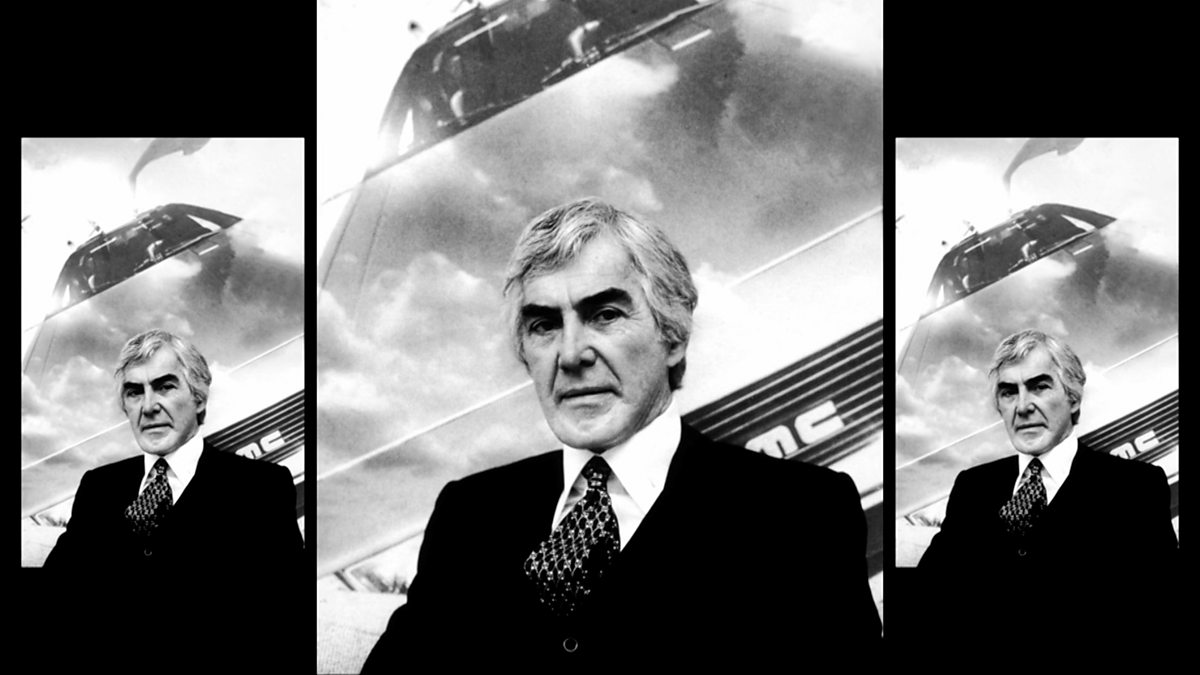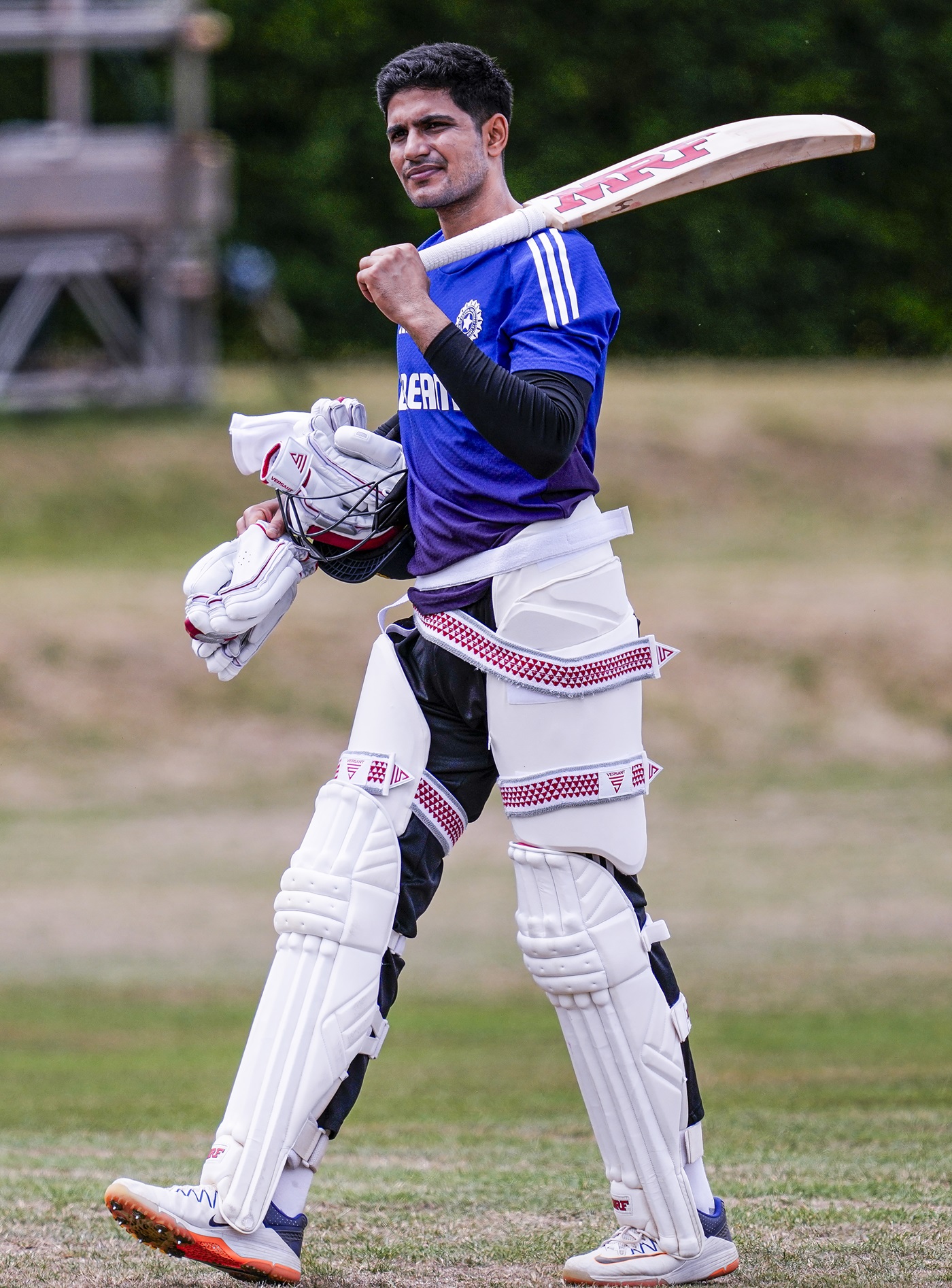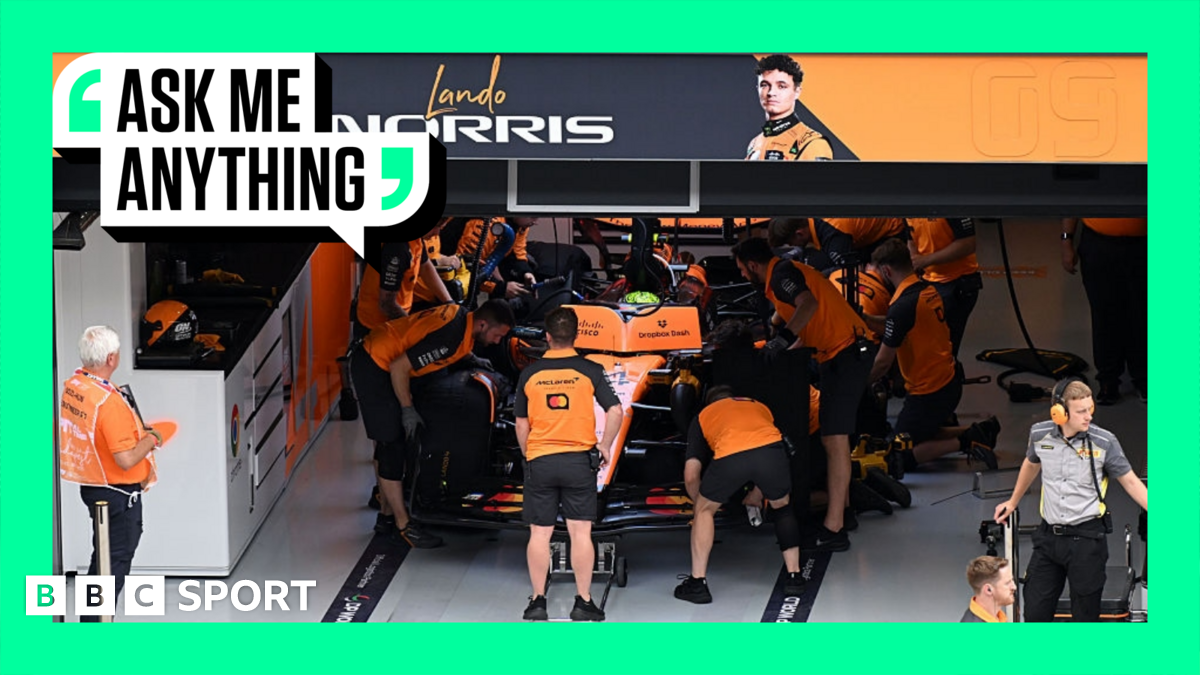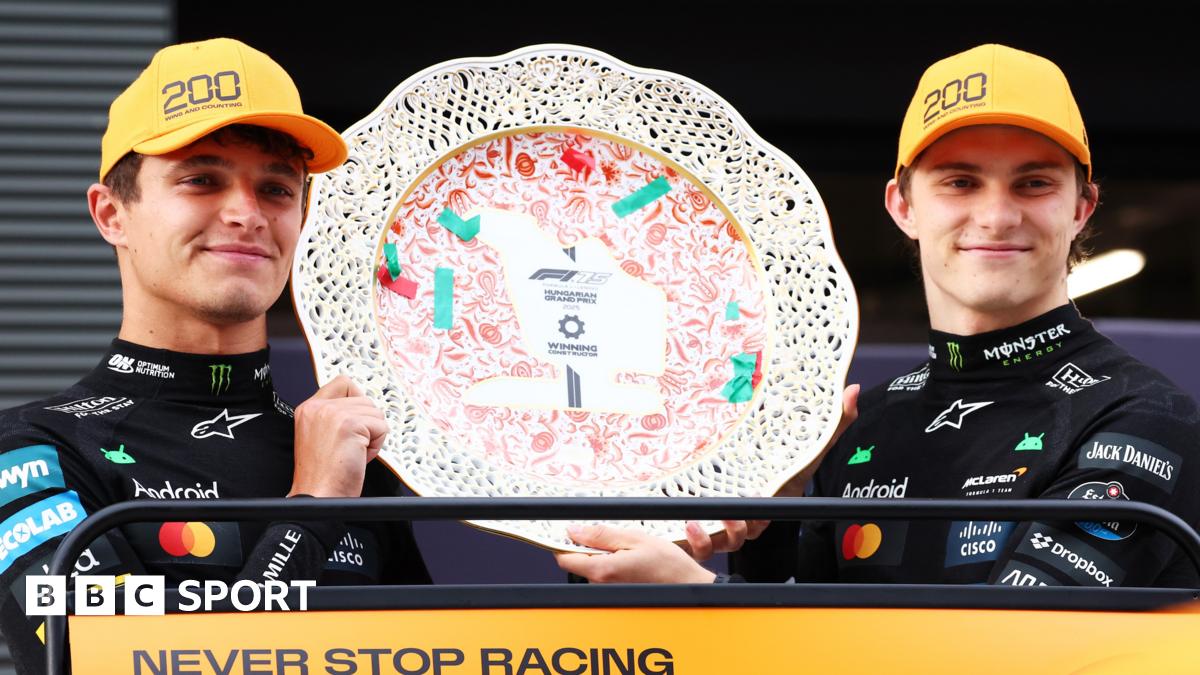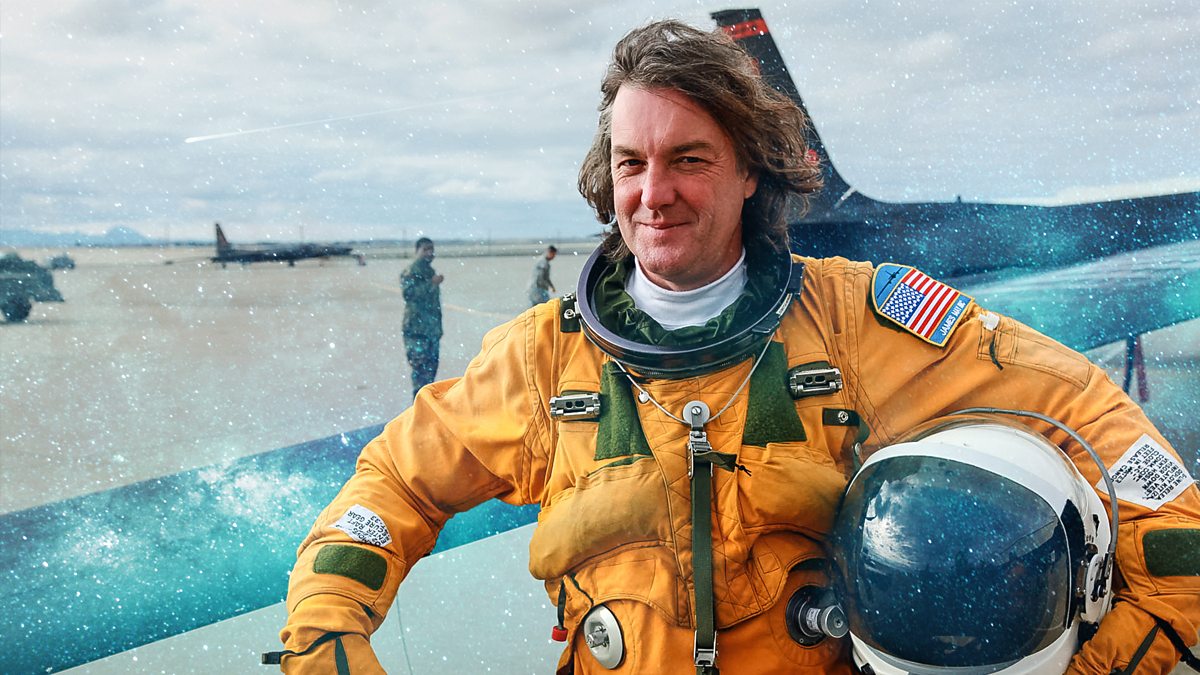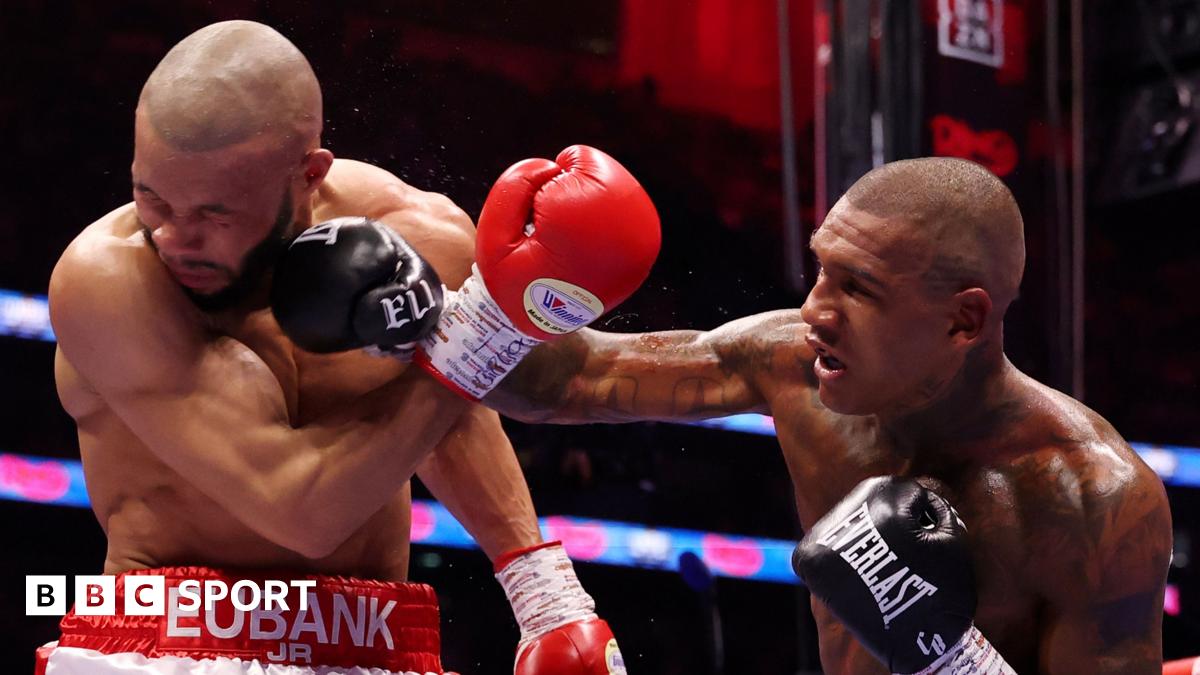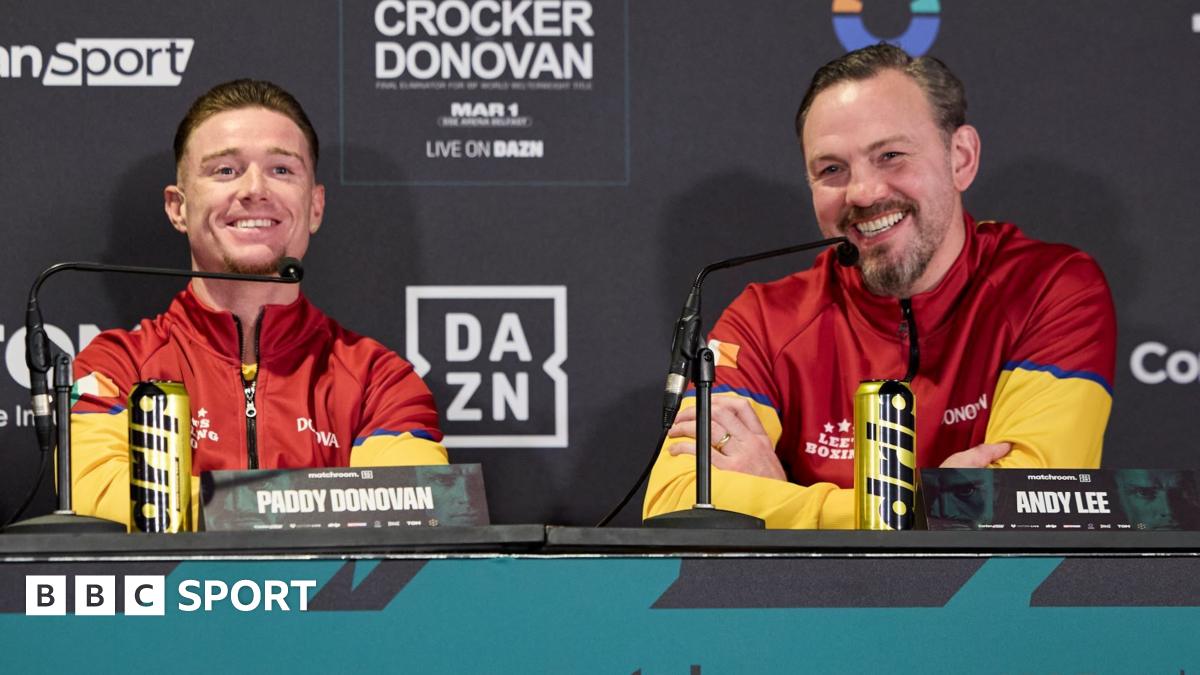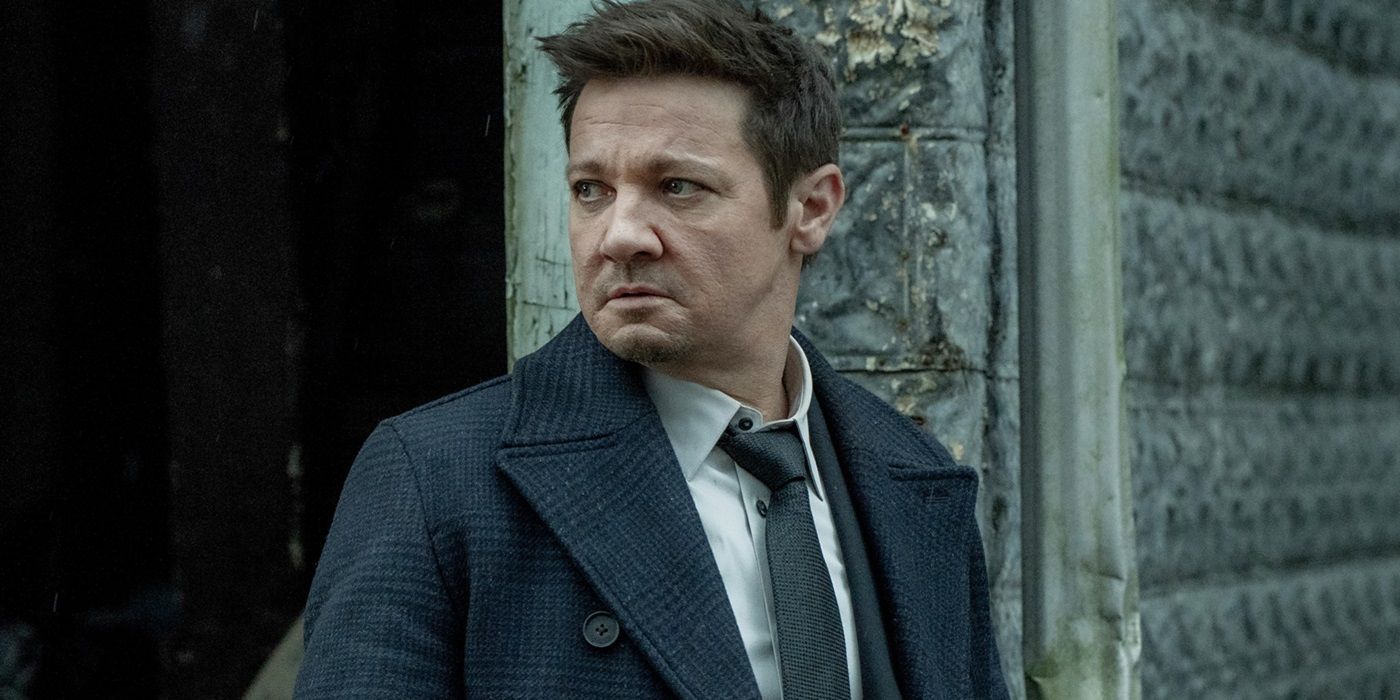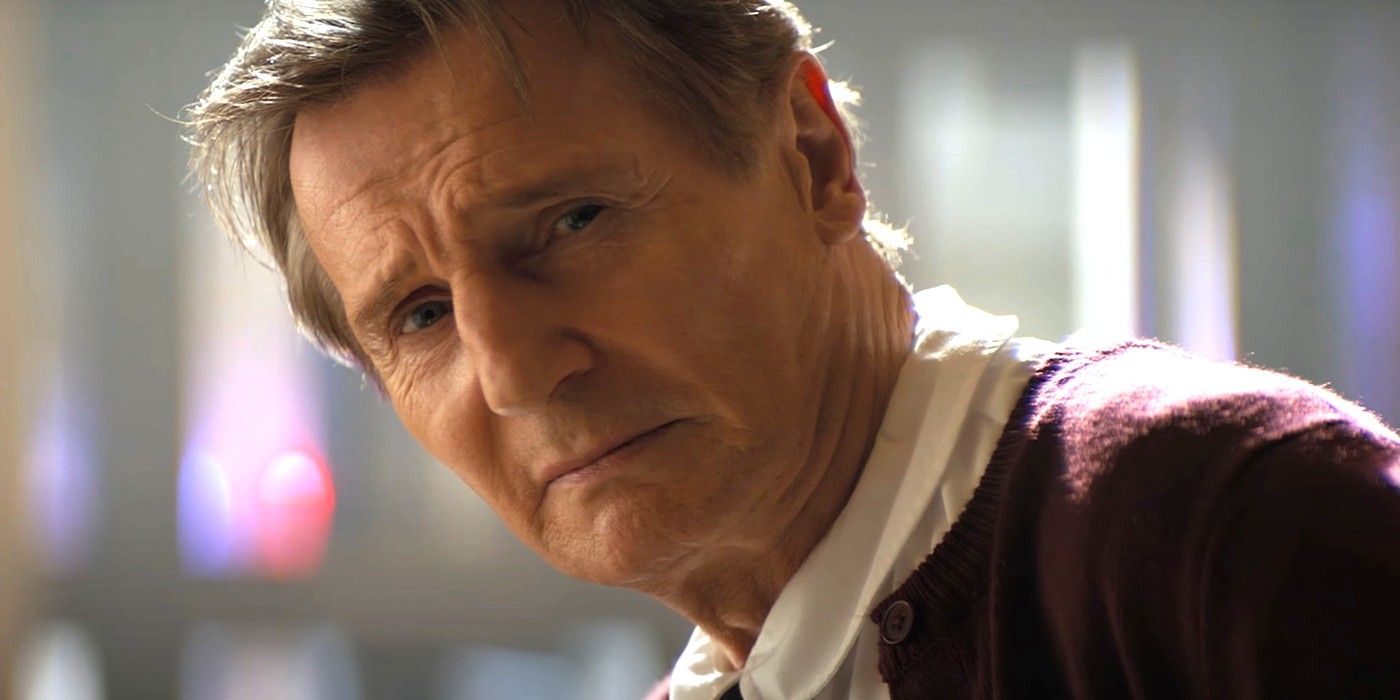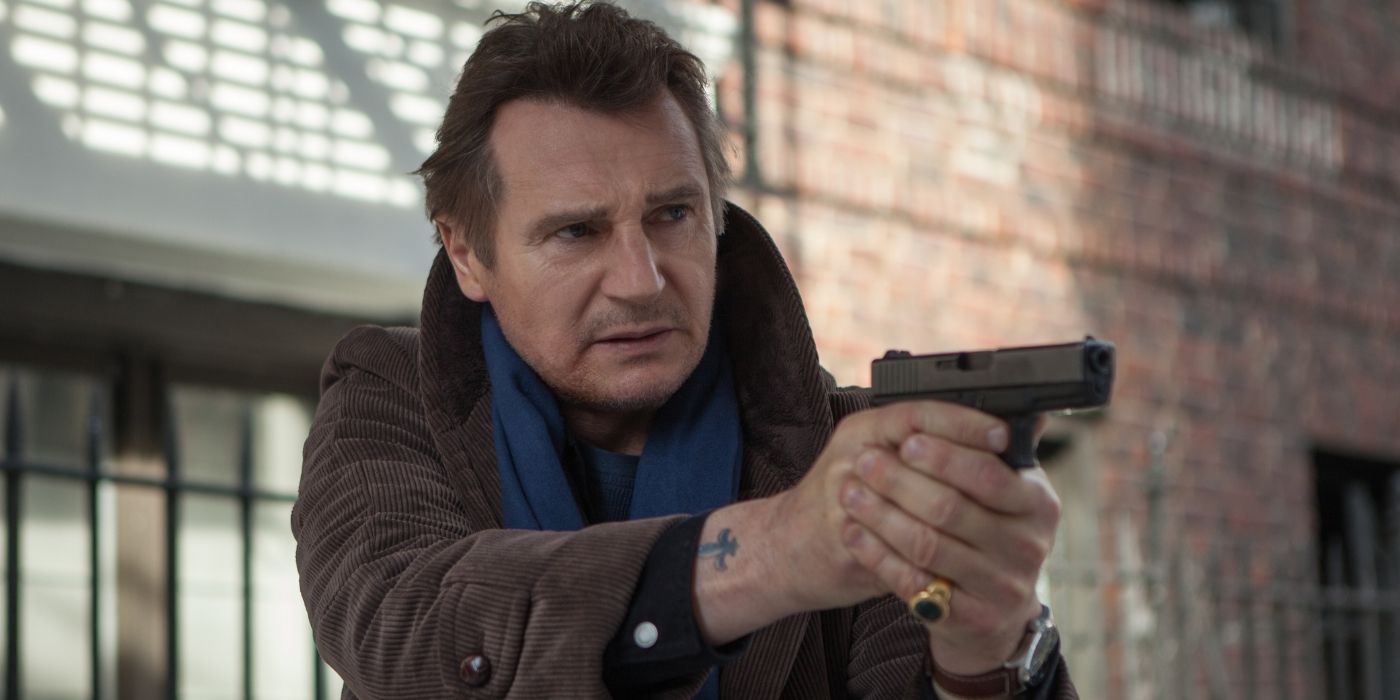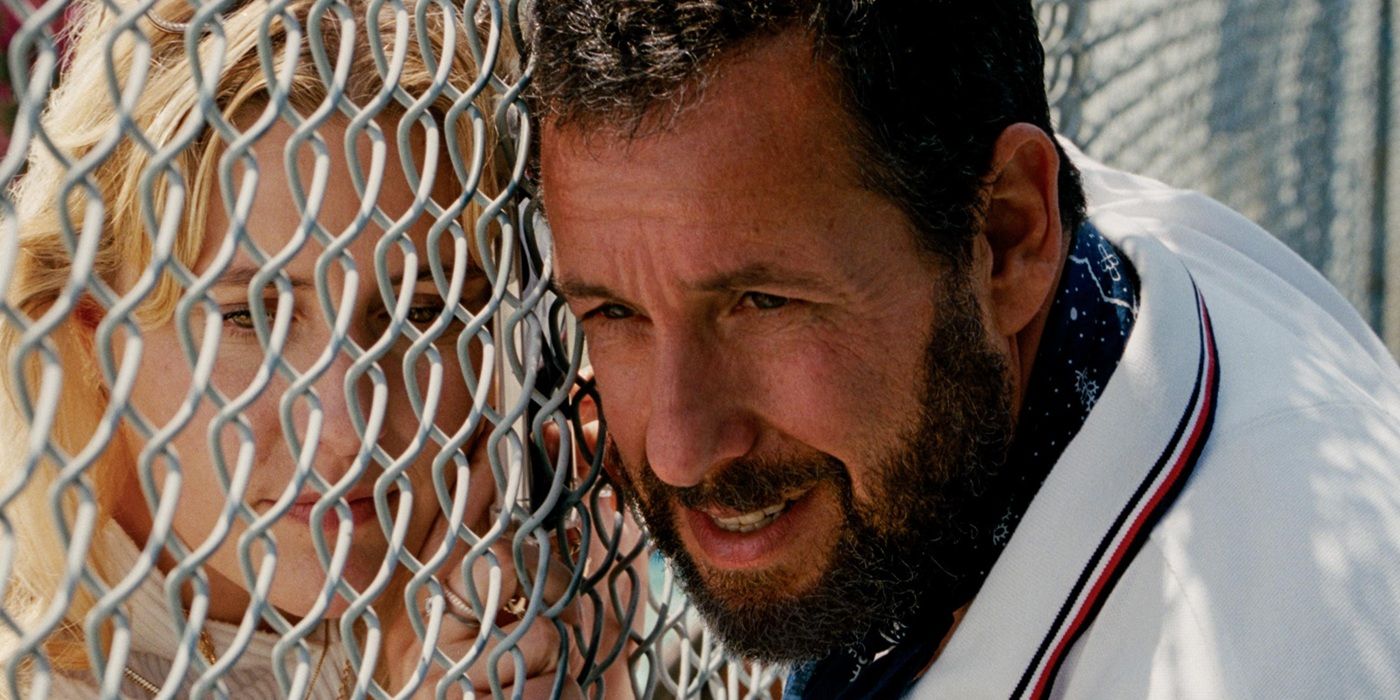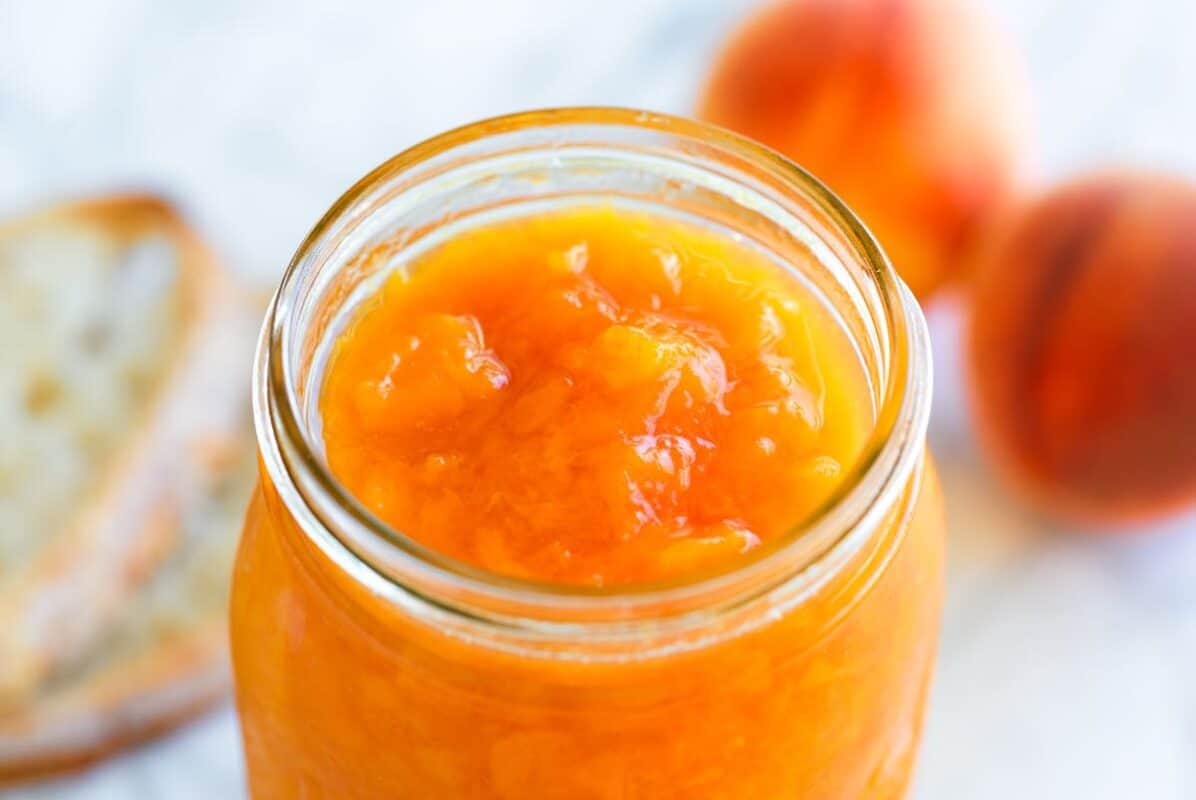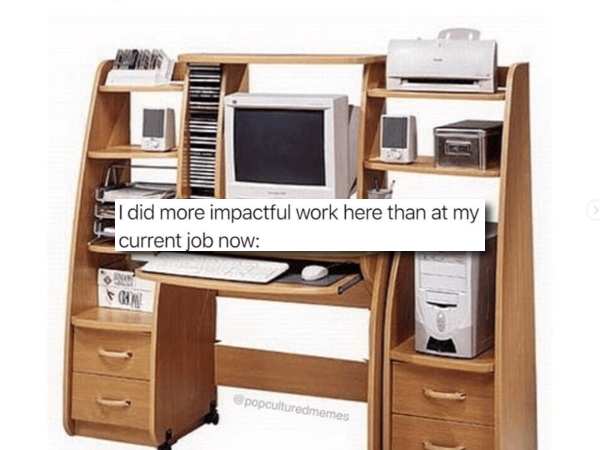Molly Baz helped turn this former McDonald’s in Portland into a vegan fast food paradise
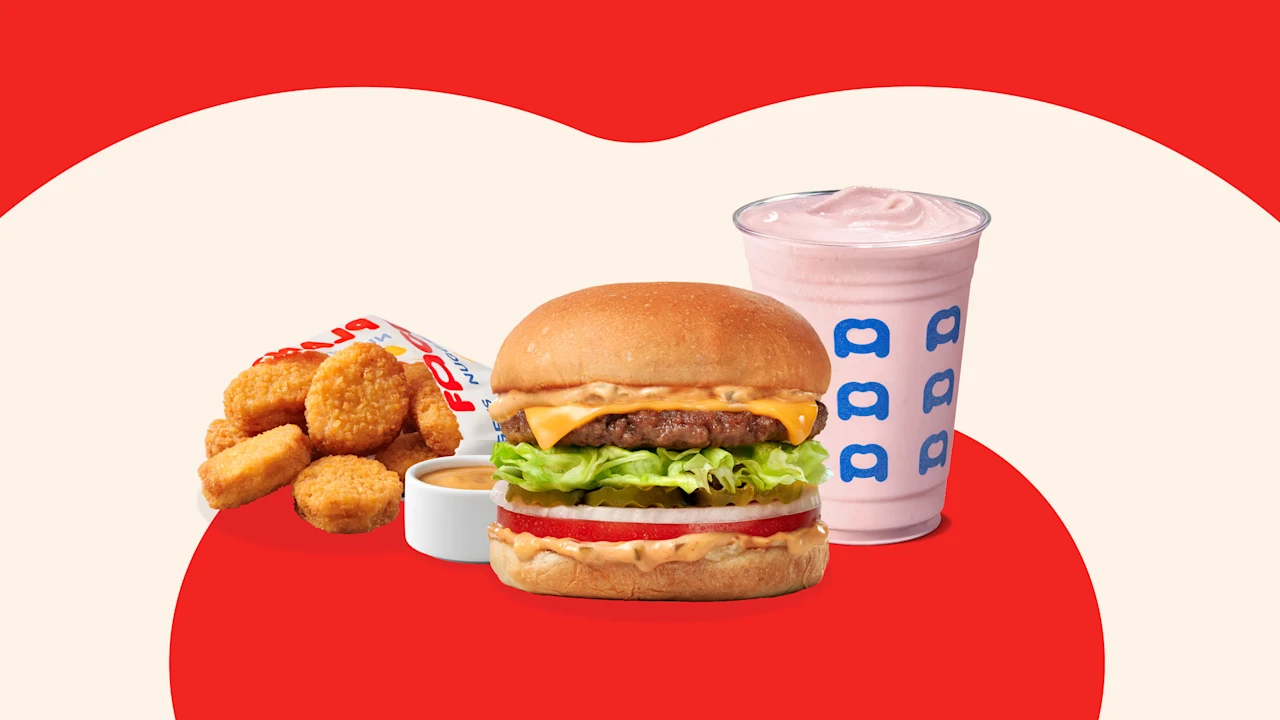
In an industrial pocket of North Portland, Oregon just a few minutes off I-5, there’s an old McDonald’s that was given a surprising second life.
The familiar architecture is now home to Face Plant, a vegan burger joint that opened earlier this year and aims to “become the best fast food worldwide,” according to founder Matt Plitch. It’s a lofty goal—but it’s driven by an even bigger one. “Fast food is [a huge source] of meat consumption outside the home,” he says. “And so the aim is to change the trajectory of global warming for 8 billion people.”
Face Plant was nearly four years in the making—from developing a business plan and bringing in investors, to finding the right location, to developing an alt-meat blend that “tastes better than a Big Mac.” On that last front, Plitch had some serious help: The food influencer and cookbook author Molly Baz did all of the restaurant’s recipe development.
And this labor seems to be paying off: In the first few months, Plitch says they’ve served “tens and tens of thousands of customers,” far exceeding expectations, with the average ticket running 50% higher than they anticipated and more than double that of McDonald’s.
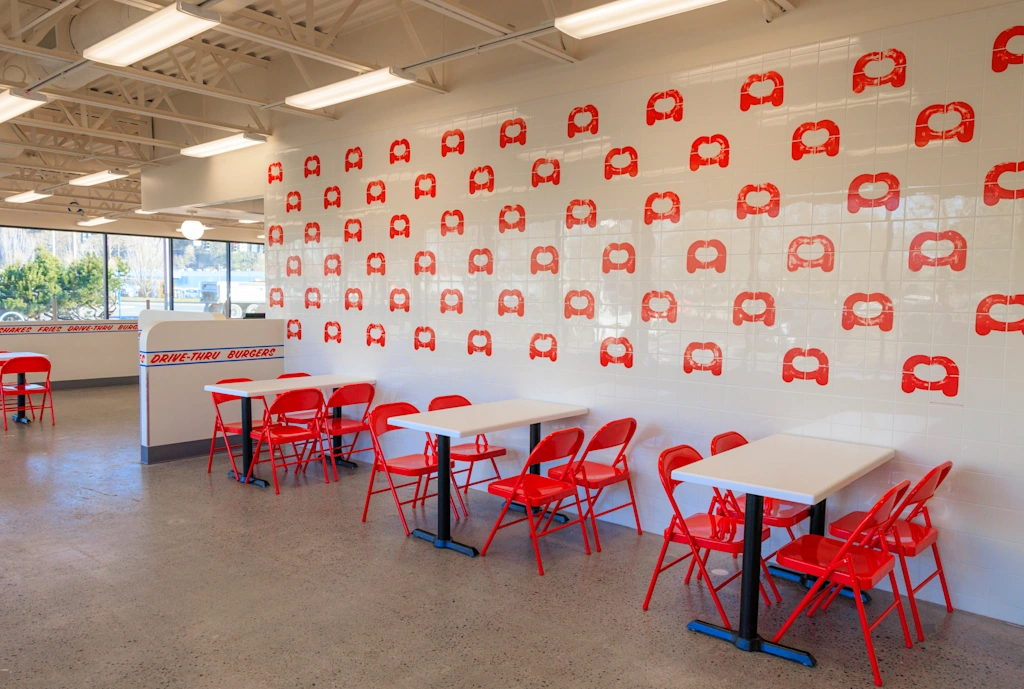
Plant-based products are part of a growing industry, one that was valued at $8.1 billion in 2024, more than double that of 2017. Still, there have been strong headwinds—both Impossible Foods and Beyond Meat have seen sales decline as they struggle to identify a broader customer base beyond just vegans and vegetarians.
But Plitch says his target customer actually isn’t vegan at all. ”We built this to serve people who love fast food and eat a ton of meat,” he says. “And while we’ll be so grateful for vegans and vegetarians who are interested and want to support us, the entire model is around stealing the McDonald’s customer.”

For starters, that means not broadcasting Face Plant’s sustainability bona fides. The color scheme is a bright red (no greens or browns in sight); the logo is an outline of two hands holding a burger; the font is chunky and casual—it all feels inviting and familiar, not like it’s trying to coerce people into changing their eating habits to save the planet. Which, Plitch says, is exactly the point.
This is a particularly resonant goal, especially given where Face Plant is located. At the base of a peninsula called Swan Island, the area is home to a number of warehouses, port workers, UPS and FedEx facilities, a Coast Guard station, and the Daimler Truck North America headquarters. “It’s a little bit of a different flavor than your typical Portland neighborhood,” he says. (It’s also part of the Portland Harbor Superfund site, which brings an added poignance to Plitch’s environmental hopes for his restaurant.)
What’s on tap
Face Plant’s menu is intentionally small and includes a burger (with four different variations, depending on how loaded you want it), nuggets, french fries, and milkshakes. “We want to do a few things exceptionally well,” Plitch says, adding that they are adding a plant-based chicken sandwich to the menu this fall.
The buns are from the same bakery as In-N-Out Burger, while the base of the burger is Impossible meat. Still, it took three years to get the taste where he wanted it to be. And that’s where Baz came in. When Plitch was growing up, Baz’s now-husband, Ben Willett, was one of his closest friends, so after he came up with the idea for Face Plant, she was his first—and only—culinary call.
He says in addition to Baz being “one of the best recipe developers in the world,” it was also significant that she was an omnivore. “It was so important to us that Molly came into the test kitchen every day and asked herself, ‘Is this as good as the Double-Double Animal Style I had at In-N-Out yesterday?'”
“Molly’s superpower is craveability. She makes things that stay with you after you’ve had them,” he says.
On this front, he had some serious help: Food influencer and cookbook author Baz did all the recipe development for Face Plant, turning Impossible’s standard mix into “something entirely unique through new food science,” he says.
Her team also developed the vegan milkshakes, which are made using pea protein. Plitch says while coffee, chocolate, and strawberry took “a matter of days,” vanilla took a year to develop. “You can’t mask the coconut, oat, or soy.”
Plitch says Baz continues to be involved in Face Plant, not just with developing new items like the forthcoming plant-based chicken sandwich but in strategic planning as they look at expanding the business.
Baz, who’s also a shareholder in the company, isn’t the only high-profile partner. Face Plant raised about $4 million in venture funding, including from former Patagonia CEO Rose Marcario’s ReGen Ventures. (AgFunder, Bread & Butter Ventures, and Ceas are also backers.)
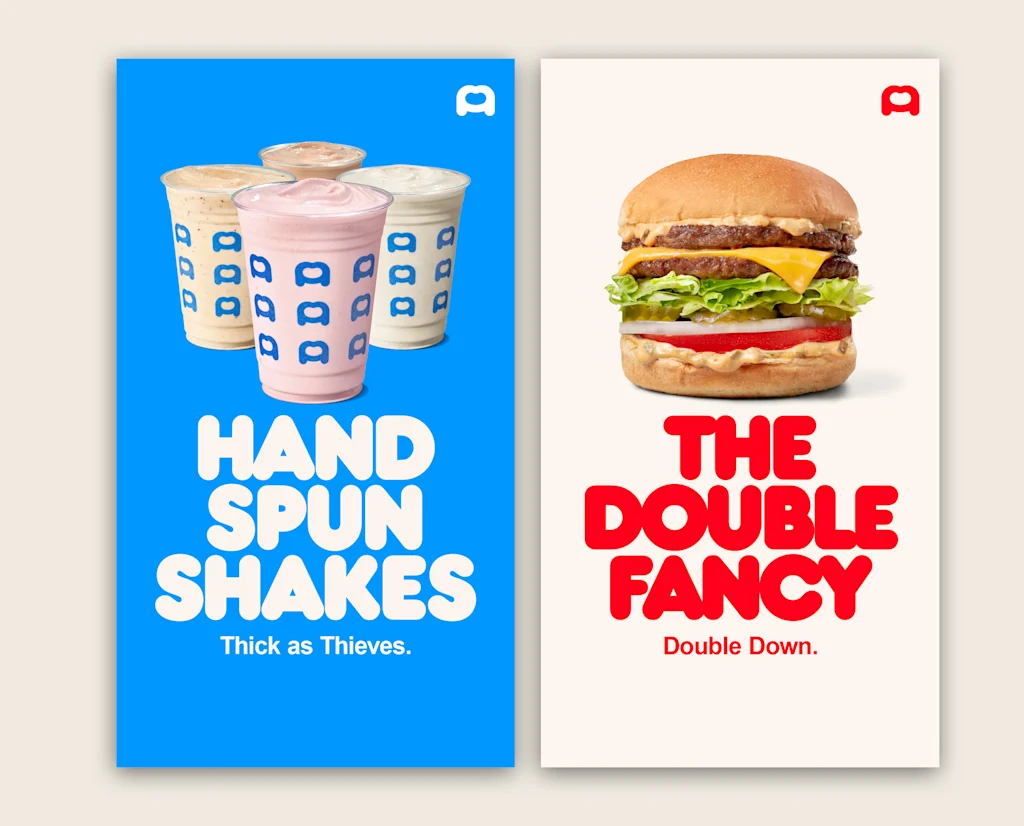
Why fast food?
Vegan restaurants have been gaining popularity—and clout—in recent years, perhaps most notably when Michelin-starred Eleven Madison Park transitioned to a plant-based menu in 2021. Still, fast-food forays into meat alternatives haven’t been a resounding success. McDonald’s, Wendy’s, and Burger King all introduced plant-based burgers over the last five years, but only Burger King’s Impossible Whopper is still around in any meaningful way—and even then, customers online have complained that they’re not widely available.
But Plitch isn’t turned off by these trends. “I really, truly feel like food service and fast food is the greatest platform for hospitality in the world.” Before Face Plant, he launched a carbon-neutral food brand, but he couldn’t shake the distance between what he was creating and the consumer. “You don’t own the relationship with the customer; you don’t get to control your price. You’re sort of effectively in the voice of Whole Foods or Fred Meyer,” he says. “One of the things I really yearned for was being front and center in terms of the relationship with the customer.”
That relationship is a priority for Face Plant. With more than 45 employees, Plitch says they spend about eight times more hours training them than the competition does. At $17 an hour, the pay is also higher than many fast food joints (Portland’s minimum wage is $16.30).
A key part of orientation is watching the Mr. Rogers documentary Won’t You Be My Neighbor together. “It’s the greatest two-hour summary of everything we have to do as a company,” he says. “The burgers, the shake, the fries, these are our little Trojan horses covered in special sauce to do our real job, which is what I think he was setting out to do, of showing people they deserve love.”
And, in a marked difference to the vast majority of his fast food competitors, Plitch is pushing back against automated technology instead of embracing it. “[Their] belief, as far as I can tell, is that if we minimize that connection, we can reduce labor to increase profit. Our whole job is to do the exact opposite of that,” he says. “We are not a tech company. We are a human company. And that’s the entire bet we’re making.”
A hungry audience
In the months that Face Plant has been opened, Plitch says their expectations have been “blown away.” In the first month alone, sales were five times what he expected; they’re planning to continue expanding their nighttime hours, eventually staying open until 2 a.m., and to add delivery and catering soon.
And customers seem impressed so far: The vegan joint has over 600 reviews on Google, the vast majority of them five stars. “You’ve got truckers ordering next to University of Portland kids and everything in between,” Plitch says. On this front, the location is a big help: It’s a major funnel for people heading to or from the interstate highway and is in a bit of a restaurant wasteland, which likely makes it an even more attractive option for people who work nearby.
The price is a factor as well, which was Plitch’s aim from the start. He says their goal was just to be around a dollar more than a comparable McDonald’s menu item. “We spent three years to make sure the cost could be competitive with the big nationals,” he says. “Our most expensive meal is $13.49.”
He also stresses the importance of taste and freshness compared to their competitors. The fries are made with a bit of white vinegar; the cold brew shakes have instant coffee crystals. Face Plant employees slice the onions, lettuce, and tomatoes every day in house; they also make between 1,000 and 1,500 patties every day—hand-mixing the Impossible meat with their own proprietary blend of spices.
And as a meat eater myself (who’d love to be eating less meat), I was right there with them when I tried Face Plant’s burger (I went with the “fancy”). The bun was fluffy, the patty had a smashburger quality to it, and the sauce had just enough tang. But interestingly, what struck me the most were the veggies: The iceberg was perfectly crisp, the onions were thinly sliced, and the pickles immediately sent me back to the 39-cent McDonald’s cheeseburger of my childhood. I was eating a fast food burger, and it was good.
While Plitch doesn’t plan to dramatically grow the menu, he has big plans to expand Face Plant’s presence. He hopes to open a second location in the next year and a half (likely also in Portland or elsewhere in Oregon or Washington), but he has global ambitions far beyond that. “Our aim is to become the most loved fast food worldwide and take down McDonald’s,” he says. “It’s going to be insanely hard but that’s the hope.”
What's Your Reaction?
 Like
0
Like
0
 Dislike
0
Dislike
0
 Love
0
Love
0
 Funny
0
Funny
0
 Angry
0
Angry
0
 Sad
0
Sad
0
 Wow
0
Wow
0





